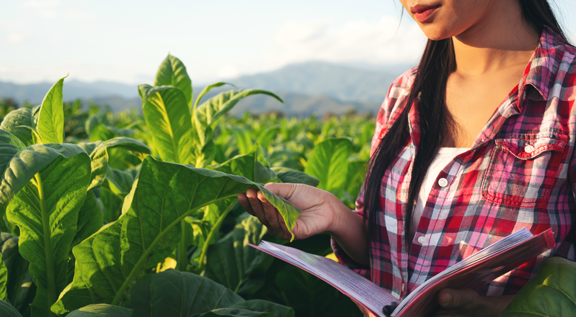
Image: Pixabay
Expert explains possible impacts of the new law on exports of Brazilian agricultural products.
The European Parliament approved an anti-deforestation law on Wednesday (19) that will require verification of a range of products such as coffee, beef, soy, cocoa, palm oil, rubber, wood and charcoal that were not produced in land deforested after 2020. The standard should also apply to derived products, such as leather, chocolate and furniture.
{module Form RD}
The approval of the Law by the European Union Parliament against imports of products linked to deforestation does not respect Brazil's forest code, which provides for the legal deforestation of part of rural properties. The EU is the largest buyer of soybean meal from Brazil, traditionally accounting for around 60% of total soybean derivatives exports. But it is also an important importer of raw oilseed grain and corn, in addition to accounting for half of Brazilian coffee exported.
The European bloc also demands good volumes of meat – especially noble and more expensive cuts – and other national agricultural products. The Law drew attention to the fact that European legislation seeks to override Brazilian legislation, and that Europeans adopted a “ruler” stance, without consulting supplier countries.
For Fábio Pizzamiglio, director of Efficienza, a company specializing in foreign trade, the new rule affirms a market trend. “What we currently observe, when we talk about exports, is a search for products that are sustainable and have environmental certifications. The European Union's movement reflects the current scenario, where products that seek the entire production process to be carried out based on good environmental practices are more attractive. In this way, the new rule meets the trends that we could already observe in the market”, stated the executive.
Another aspect highlighted by the executive is the need for adaptation and dialogue with the European Union. “We are currently making a movement that seeks to strengthen economic ties with Asian countries. However, the European Union is of great importance for our economy, especially when we talk about coffee, and, for this reason, it will be necessary to carry out dialogues and rapprochement, such as the review of rules for products that focus on export, if is necessary. I believe that this will be one of the main themes for the president of the republic's trip to the European continent”, explained the executive.
Depending on the region, Brazilian law allows the use of 80% from the property for agriculture, leaving the remainder as an environmental reserve. In the Amazon region, on the other hand, the forestry code requires that 80% of the forest on a property be kept standing.
Deforestation is responsible for around 10% of the global greenhouse gas emissions that drive global climate change, and the law passed by Parliament aims to address the EU's contribution to this. The law, approved after an agreement between negotiators last year, does not target any particular country but faces resistance in other nations.
Indonesia and Malaysia, the world's biggest palm oil exporters, have accused the EU of blocking market access for their product. On the Brazilian side, Itamaraty is evaluating how Brazil could position itself in relation to the law approved by the Europeans, but expects that some states in the bloc, which still need to confirm Parliament's approval, reject the legislation as it stands.
When the law is approved by the States, large companies will have 18 months to comply with it, and smaller companies will have 24 months. Companies that fail to comply could face fines of up to 4% of a company's turnover in an EU member state.
COFFEE AND MEAT
The Brazilian Association of Meat Exporting Industries (Abiec) was not surprised by the approval of the law, considering the previous agreement, and said that the sector has already been monitoring deforestation since 2009.
Currently, there are 1,400 Brazilian farms that supply cattle for meat export to the European market, according to data released by the Brazilian Table for Sustainable Livestock. The entity believes that these farms, which are direct suppliers to the slaughterhouses, are already in the process of adaptation and can meet the new requirements within a period of up to 18 months.
The coffee sector received the European law with some calm, stating that the country's production is already traceable, in addition to being generally carried out in consolidated areas, without great pressure for deforestation. According to data from the Council of Coffee Exporters in Brazil (Cecafé), coffee exports from Brazil between March 2022 and March 2023 were 37 million bags, representing a drop of 7.7% compared to the same period in last year. Brazilian exports were destined for 102 countries, with the majority (50.8%) in Europe, followed by North America (20.8%), Asia (17%), South America (8.2%), Oceania (1.4% ), Central America (1.1%) and Africa (0.7%).
The type of coffee most exported by Brazil in the 2022/23 harvest year was Arabica, representing 86.4% of international sales of the Brazilian product. Next came soluble (10.0%) and Robusta (3.5%). Roasted and ground coffee had a minimum share of just 0.1%. Coffee exports are an important source of income for Brazil, which is the world's largest producer and exporter of the grain. The drop in exports could have significant impacts on the country's economy, especially in coffee-producing regions.
“Coffee is of great importance throughout our economy and there are regions in Brazil that depend on coffee exports to keep the economic wheels turning. Therefore, I believe that the conversations between Brazilian representatives in Europe will focus on this type of approach, mainly to maintain this market”, added Pizzamiglio.
Source: datagro












